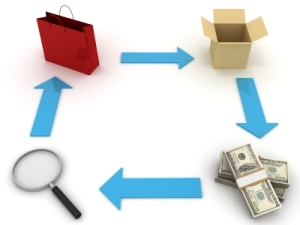The soul of selling…
Rachelle Gardner posted an interesting topic on her blog today and I’m afraid I just couldn’t help myself. I had to go through all that she said publishers did for one and tick off what I actually do for myself. To see if I represent ‘the soul of selling’ as much or as more as a grandiose marketing team might. I should point out that I live in Australia, my print publisher is based in the UK and all e-pubs are carried out through Amazon and Smashwords, based in the USA.
Have ‘look see’ and if you’re a writer, do tell me what you do for yourself and your books off that list.
Prepare promotional materials
▪ produce and print ARCs (advance reader copies) which are far more expensive on a per-book basis to produce than the actual book Done by self.
▪ write flap copy, back cover copy, all catalog and marketing copy Done by self.
▪ create a press kit for soliciting reviews and author interviews Done by self.
▪ provide printed material to assist author’s own promotion: postcards, bookmarks, flyers, etc. Done by self.
▪ Book signing/event support (posters, press releases, bag stuffers)
Trade advertising – print & retail
▪ placement in publisher’s print catalog Done by my POD publisher.
▪ product placement in retailers’ catalogs & fliers
▪ print advertising in trade magazines
▪ in-store product placement (special tables or endcaps)
▪ print & web ads with distributors (Ingram, Baker & Taylor, Spring Arbor, etc.) Done by my POD publisher.
▪ shelf talkers for retail outlets
Internet marketing
▪ a page on publisher website
▪ working with Amazon & large online booksellers for placement Done by publisher and self.
▪ assist author in developing their Facebook, Twitter & blog presence Done by self.
▪ email blasts to publisher’s list which can include hundreds of thousands of names, including consumers, librarians and retailers
▪ organize online contests Done by self.
▪ set up blog tours Done by self.
▪ may help with creating a video book trailer Done by self.
Internet Advertising
▪ advertise in online magazines and newsletters appropriate to the book
▪ Facebook advertising
▪ banner ads on appropriate websites
Specialized promotions (specific to type of book)
▪ work with author to capitalize on author’s own areas of influence, which could include organizations they’re a member of, alumni associations, professional associations, local historical societies, etc. Done by self.
▪ promotion to book clubs and reading groups (email blasts or even a mailing of the book)
▪ pitch to large national reading groups
▪ submit books to major contests
Trade publicity
▪ trade shows
▪ pitch to trade magazines for review
Consumer publicity
▪ organize book tours & book signings
▪ press releases, especially locally or regionally where the author has influence Done by self.
▪ sending press kits to all appropriate media outlets: radio, TV, newpapers & magazines. Done by self.
▪ following up on requests for books, sending out review copies Done by self.
▪ booking print, broadcast, and online interviews Done by self.
▪ included in targeted publisher newsletters to consumers
▪ send out influencer copies”
Rachelle continues: “Most publishers have a sales team (or rep group) who proactively sells titles to retailers. They service the approx. 10,000 bookstores still left in the U.S., chains and indies combined, plus Walmart, Target, Costco, etc. In addition, the sales department interacts with book clubs (Book-of-the-Month, Literary Guild, etc), international accounts, rack jobbers (for grocery stores and gift shops), nonprofit organizations, and special accounts. This is a “sales” function (not technically marketing) but it’s something publishers do that you, the author, are unlikely to be able to do yourself. And it’s another way your book gets “out there.”
 I am my sales team. Granted my sales are a drop in the ocean to what they might be if I had a Big Six team behind me. BUT, if I can do a good proportion of the above, plus help run a farming business, look after acres of garden and write other books, I wonder if that raises issues about the efficiency and efficacy of what a publisher’s sales team actually does.
I am my sales team. Granted my sales are a drop in the ocean to what they might be if I had a Big Six team behind me. BUT, if I can do a good proportion of the above, plus help run a farming business, look after acres of garden and write other books, I wonder if that raises issues about the efficiency and efficacy of what a publisher’s sales team actually does.
NB: One thing that is not included in the above list and which I should like to mention is how important the fellowship of readers and writers is in advertising and on-selling. No matter how good a sales team might be, in the end it’s word of mouth between the members of the marketplace (ie one’s readers) that will let a book sink or swim and I have to say right here and now, that I have been truly fortunate with my readers and also fellow authors who have chosen to support me. The worth is incalculable.
